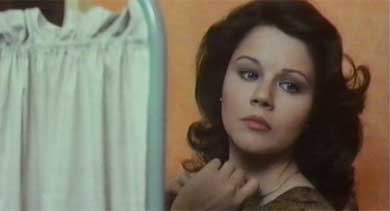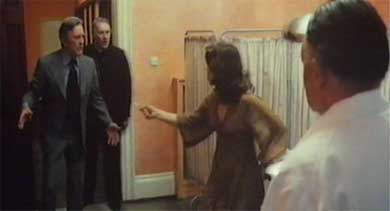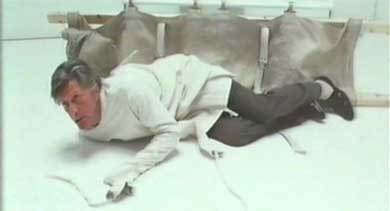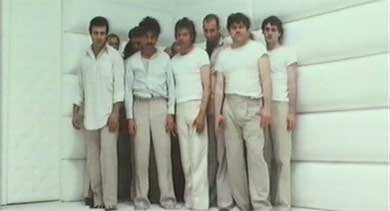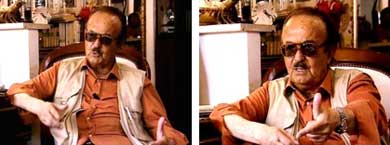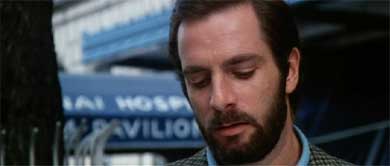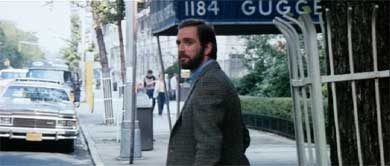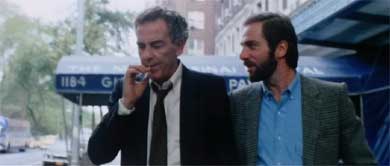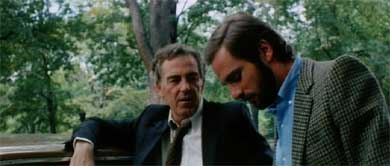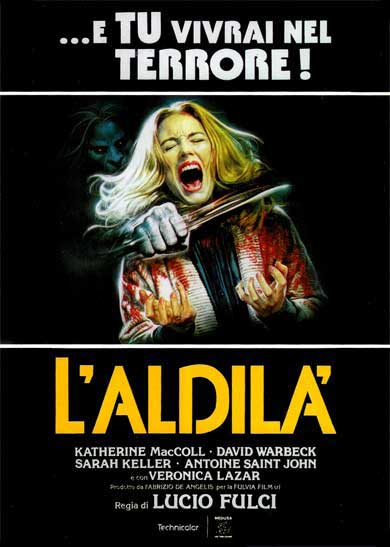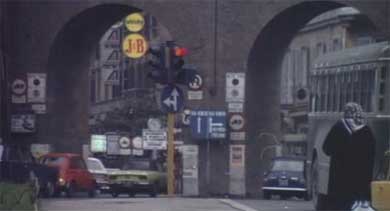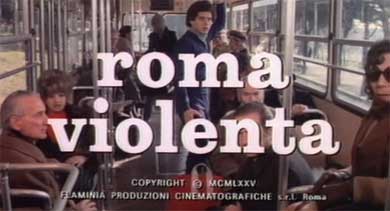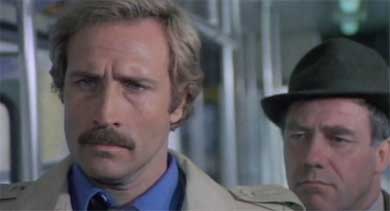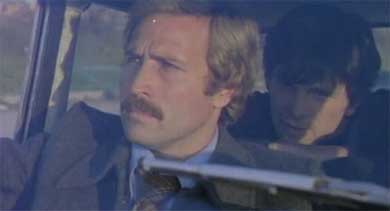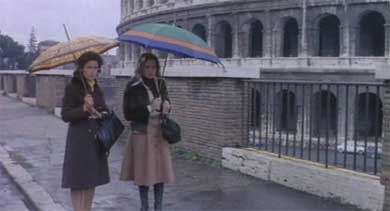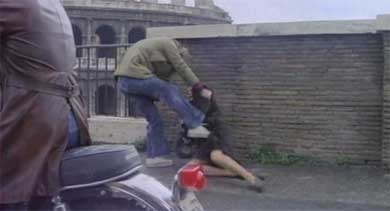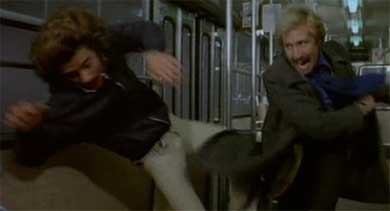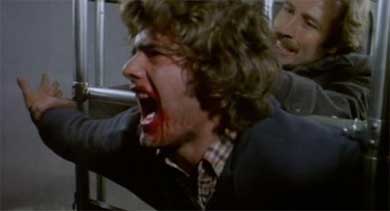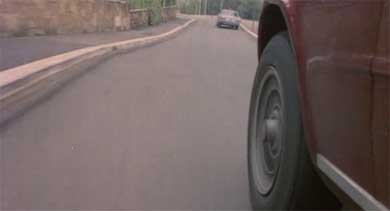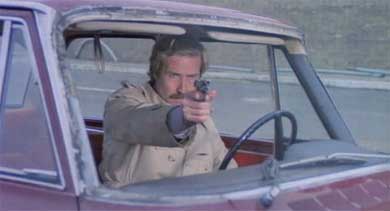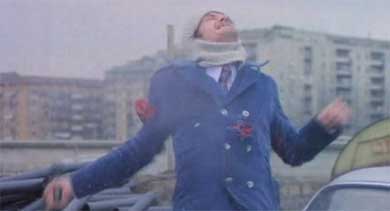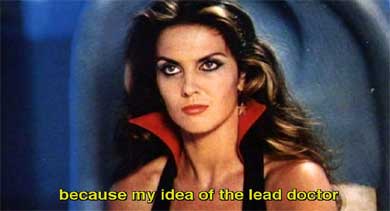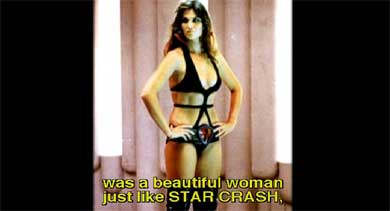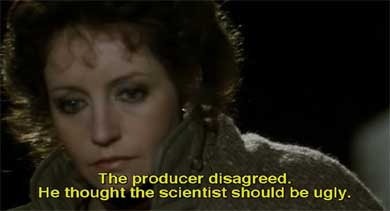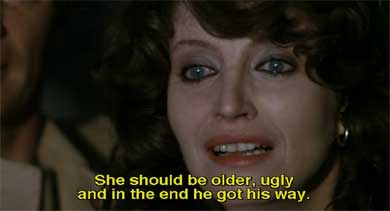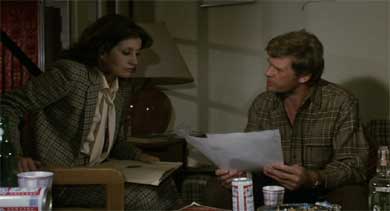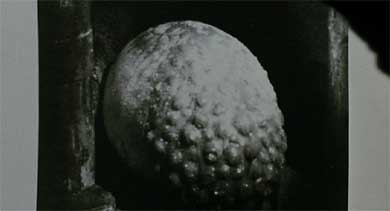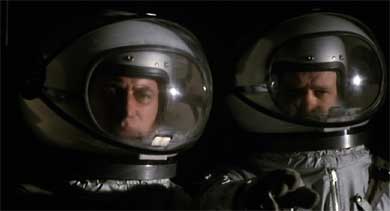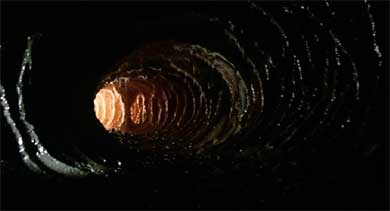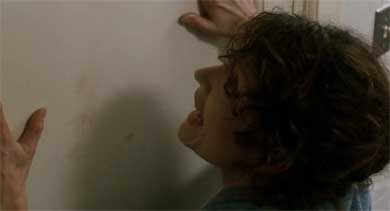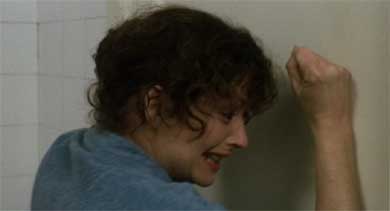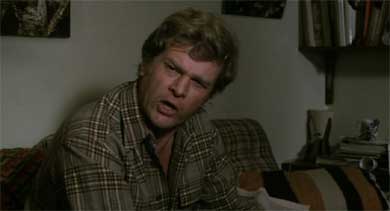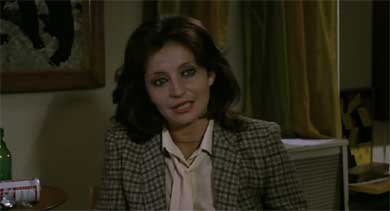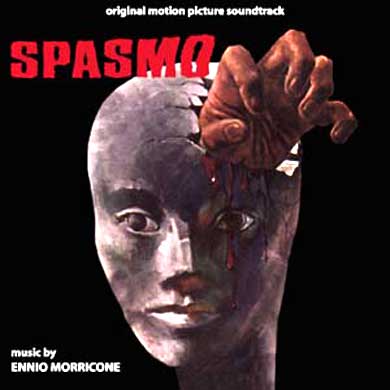Holocaust 2000, 1977. Directed by Alberto De Martino. With Kirk Douglas, Simon Ward, Agostina Belli, Adolfo Celi, Massimo Foschi.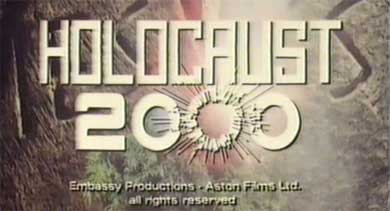
Robert Caine (Kirk Douglas) is an American Industrialist, whose company is about to build a huge nuclear plant in a Middle Eastern country. His son Angel (Simon Ward) works for him and is also determined to build this plant, but Robert’s wife Eva, who has a majority of the shares of their company, wants to cancel the entire deal. But she is accidentally killed by an Arab assassin (Massimo Foschi), whose target was supposed to be Robert.
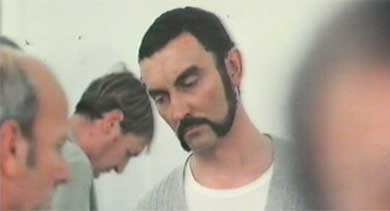
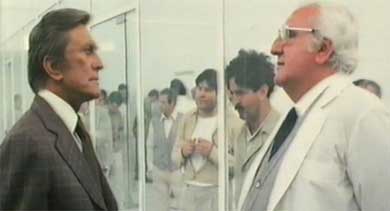
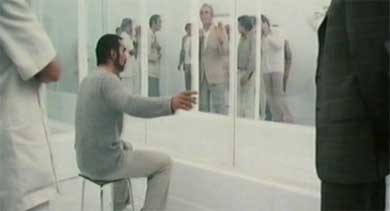
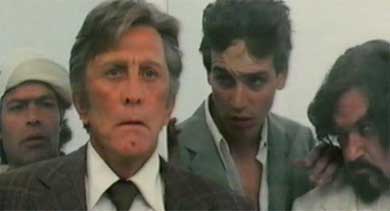
But there’s more opposition. The new Prime Minister of the Middle Eastern country thinks that the nuclear plant isn’t safe enough and wants to cancel the order. Robert and Angel start extensive tests to prove everything’s safe, but the computer gives a strange error-code. But then Robert meets a priest who shines a different light on that particular code: it might be a first sign of the coming of the Anti-Christ.
Although Robert is fascinated by the priest’s stories, he just can’t believe it’s true. But after a series of gruesome accidents, involving one of his top researchers and the Prime Minister, and a strange, visionary nightmare, he starts to doubt. And when his new girlfriend Sara (Agostina Belli) tells him she’s pregnant, he really believes that that boy will be the Anti-Christ. And he will do anything to prevent it from being born....
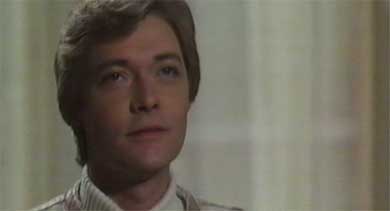
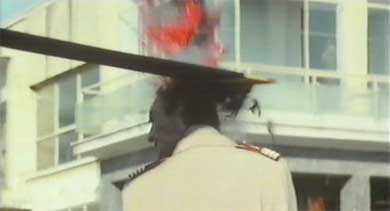
This film is directed by Alberto De Martino, who made several films in whatever genre was popular at that time, but never managed to make much of an impression. This Italian/British co-production obviously tries to cash-in on the success of The Omen, made a year before, and it isn’t actually much better or worse then that film.
Kirk Douglas leads a cast of actors with different nationalities and the usual strange mix of accents. All three leads are pretty good actually, and there are also some familiar faces in supporting roles, like Adolfo Celi for instance. With an international star like Douglas attached, the producers obviously could spent some extra bucks and it shows for the most part. Production value is rather high, but there are still some “typical” Italian B movie sets, like the computer room, which looks awful.
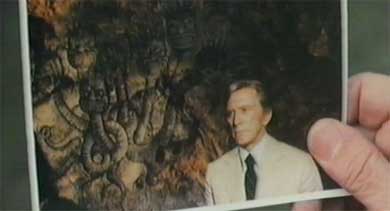
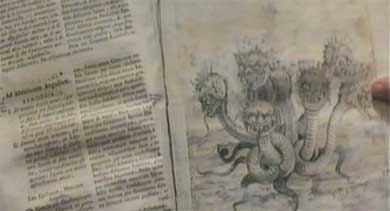
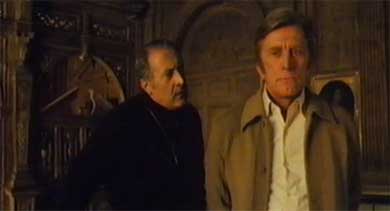
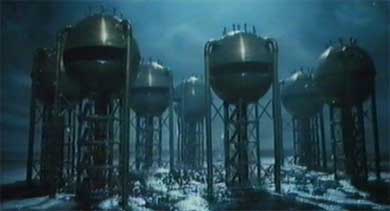
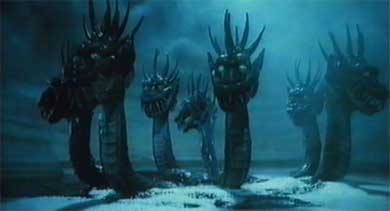
The film moves at a good pace, with enough mystery and a few bloody deaths, most notably a beheading by a helicopter. Especially those parts of the film about Caine trying to end Sara’s pregnancy are atmospheric and convey a genuine sense of fear and paranoia. Just like the nightmare-scene, it’s a well shot and edited scene. But the most memorable and effective scenes are those set in the asylum where Foschi’s Arab assassin is locked up. With its plexiglas rooms it is disorienting and claustrophobic.
The inconclusive ending is maybe a bit of a let down, but there is enough to enjoy. Ennio Morricone’s clichéd score works well enough.
